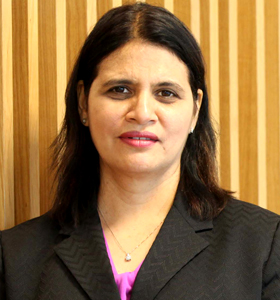
Digital Technology has become the future of Health care not only in developed countries of the World but also in the developing countries for the simple reason, that Digital health has the potential to prevent disease and lower healthcare costs, while helping patients monitor and manage chronic conditions. It can also tailor medicine for individual patients. Digital tools give healthcare providers an extensive view of patient health by significantly increasing access to health data and giving patients greater control over their health. The result is increased efficiency and improved medical outcomes. Additionally, technologies such as smartphones, social networks and internet applications offer new ways for patients to monitor their health and have increased access to information.
Stakeholders in the digital health field include patients, practitioners, researchers, application developers, and medical device manufacturers and distributors.
According to the FDA, digital health technologies help Health care providers reduce inefficiencies, improve access, reduce costs, increase quality and make medicine more personalized for patients. At the same time, digital health technologies enable patients and consumers to manage and track health and wellness-related activities more efficiently.
The application of information and communications technology to provide digital health interventions to prevent disease and improve quality of life isn't a new concept. However, in the face of global concerns -- related to aging, child illness and mortality, epidemics and pandemics, high costs, and the effects of poverty and racial discrimination on access to healthcare -- digital health platforms, health systems and related technology continue to grow in importance.
It has been predicted that the global Digital health market will see a compound annual growth rate (CAGR) of 27.9% from 2020 to 2027, when it will reach$833.44billion. Increasing elderly population, high adoption rate of smartphones, and the push to develop apps and digital healthcare platforms to reduce healthcare costs will fuel the growth of the Digital Health Market across the World.
Healthcare digitalization is reshaping the way we interact with healthcare professionals, share medical data or make decisions related to treatment and outcomes.
Common uses of digital technologies include searching medical knowledge resources, facilitating clinical support, monitoring quality of care, and mapping and monitoring the spread of infectious diseases, as well as tracking supplies of drugs and vaccines.
Digital health tools have the vast potential to improve our ability to accurately diagnose and treat disease and to enhance the delivery of health care for the individual. Digital health technologies use computing platforms, connectivity, software, and sensors for health care and related uses.
The three most popular domains of digital health technologies include telemedicine, wearable technologies, and augmented and virtual reality.
Telemedicine is how physicians treat patients remotely and the different technologies needed to make the process more efficient and faster. The other main side of digital health is data collection and how to provide on-demand medical information for patients through wearables. Wearable technologies hold the promise of bringing personalized data and health-related tracking to all users.

The three major categories of wearable medical devices are health monitoring devices, therapeutic devices, and activity tracking devices.
The Covid 19 pandemic triggered massive disruption in the healthcare industry and pushed it to invest more in Digital technology. Digital Technology gained momentum during the pandemic and has changed the future of medicine: As social distancing reduced in-person visits, healthcare providers resorted to tele consulting and online consultations.
Digital health technology in developed countries is being employed in major aspects of the health care process, including consultation, diagnosis, treatment, monitoring, patient education, behavioural modification etc.
India is leading in the adoption of digital health technology with 76% of healthcare professionals in the country already using digital health records (DHRs) in their practice.
The Government of India launched the Digital India campaign in 2015 in a bid to transform the country into a knowledge economy, with instant access to information, governance and services, and also help tackle the issues of access, affordability and quality so as to fit in with the Ayushman Bharat and Make in India missions.
Major Problems of Health Services in India include neglect of Rural Population, a serious drawback in the adoption of digital health technology with 76% of healthcare professionals in the country already using digital health records (DHRs) in their practice.
Over population, Emphasis on Culture Method, Inadequate Outlay for Health, Social Inequality, Medical Research, Shortage of Medical Personnel and Expensive Health Service are other major problems in the adoption of Digital Health Technology in India.
The digital transformation of healthcare has raised several challenges that affect patients, medical professionals, technology developers, policymakers etc.,
According to the American Medical Association (AMA) physicians want the new technology to fit into existing systems and also want to be a part of the decision-making process when it comes to new technology. The main requirements of new digital tools like the telemedicine/telehealth, remote monitoring, mobile health apps, and wearables such as activity trackers should be to help physicians with their current practices, rather than radically change what they do and how they do it.
For patients it is a question of privacy, confidentiality and misuse of their medical data. For Tech developers it is the high cost of R & D, use of A.I, Competition and protection of their sensitive data from rivals and hackers. For the Governments and Policy makers strict adherence to the guidelines of the WHO on Digital Health Care.
To conclude Digital health should be an integral part of health priorities and benefit people in a way that is ethical, safe, secure, reliable, equitable and sustainable. It should be developed with principles of transparency, accessibility, scalability, replicability, interoperability, privacy, security and confidentiality.
***********************************
All said and done on the technological advancement, still the question is, how far the technology can have its impact in the rural areas, where even today around 45% of the rural population don’t have internet access.
LSW sought comment from some leading professionals on how they perceive Digital Health Technology and how rural population can also benefit. See below excerpts of their viewpoint:
Sanjiv Navangul, Managing Director & CEO, Bharat Serums Ltd

Keeping the patient at the centre, digital healthcare works on delivering right treatments in a timely manner that improves the quality of lives. New health technologies such as wearable tech, for example, have empowered individuals to monitor their own health, while they seek healthcare information and intervention.
Standardised formats, data protocols and electronic health records can further simplify access to health data across primary healthcare clinics, diagnostic centres or specialty hospitals, and deliver a seamless care experience for patients in both rural and urban India.
Click here to read full comment by Sanjiv Navangul
Jeroze Dalal, Head-Medical & Clinical Operations, GSK

feels healthcare is getting more expensive and too exclusive and so it is not synced with the needs of the people in rural regions
Healthcare services lean heavily towards the urban areas even though the population makes up only about 30% of the total population. This small number enjoys access to over 60% of hospital beds while the rural population have access to only a third. And, with the pandemic in full swing, rural areas are bearing the brunt as they scramble to tackle COVID-19 by banking on a fragile healthcare system.
Click here to read full comment by Jeroze Dalal
Indranil Mukherjee, Managing Director, B Braun Medical (India) Pvt Ltd

Digitalisation of healthcare can significantly impact healthcare delivery in India and in
enabling value-based care. It can help transcend the barrier between hospitals and patients
and improve in healthcare access with a profound impact in moving beyond Metros & cities
to the interior towns and rural India………………..
The biggest issue confronting Rural India is ‘accessibility’ arising out of the infrastructure gap of providers, which adds to cost and time but also delays the prognosis and timely intervention.
Click here to read full comment by Indranil Mukherjee
Vivek Mendonsa, Marketing Director, Lawrence & Mayo

Digital Healthcare technology, under its umbrella includes mobile health (mHealth) apps, health information technology (IT), electronic health records (EHRs), electronic medical records (EMRs), wearable devices, telehealth and telemedicine,
The internet of medical things (IoMT), Big Data, Artificial Intelligence, Machine Learning (ML)Blockchain, Chatbots, genomics, virtual reality (VR) and augmented reality (AR) technology and personalized medicine.
Click here to read full comment by Vivek Mendonsa
LSW lifescienceworld
www.lswlifescienceworld.com